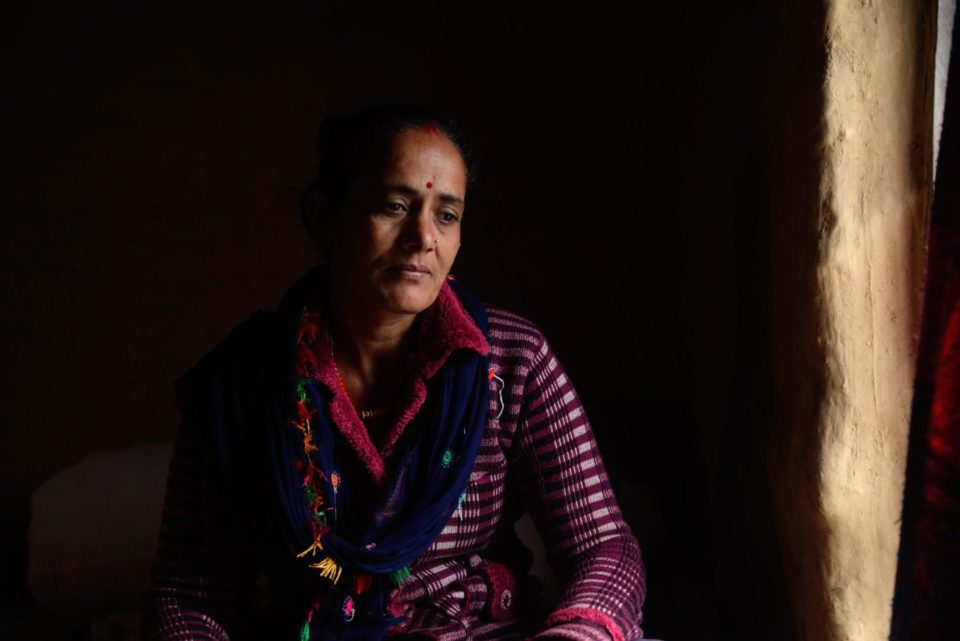
Lalita Joshi Bedkot 5, Kanchanpur
(Part 1/2) “I was 14 years old. They did not allow me to come to the garden. I lived in the shed. The shed had a thatched roof. It was made of wood and stones and was elevated with wooden pillars. It was polished with cow dung and red mud. Everyday mother would bring me food and water. The first time I was very afraid. When the 4th day was over, mother came to the shed and gave me a new set of clothes. She also gave me fruits – some apples, bananas, and coconut. Every month during menstruation we girls in the village would go and lived in the shed. And we all went to the river to wash our bodies.
Back in the time, in many families, girls were married and given away even before they reached the age of ten. The practice was to give away the daughters to marriage before she menstruated. Girls who had not reached the age of menstruation were considered pure. That was the tradition. So my parents wanted to give me away before I lost my ‘purity’. However, I had my first menstruation before marriage.
During those days, I was very naive. I was not able to ask important questions like, ‘Why do I have to stay outside when I am menstruating?’ I would cry but who would listen to my cries. Who would see my fears? I never asked why we follow these practices. I had no courage. I knew things would have been easy for me if there were no such restrictions for me and other girls in the village. But these feelings never made it to words and never reached anyone’s ears.”
#BreakingTheSilence with Dignity Without Danger: Menstruation in Nepal





